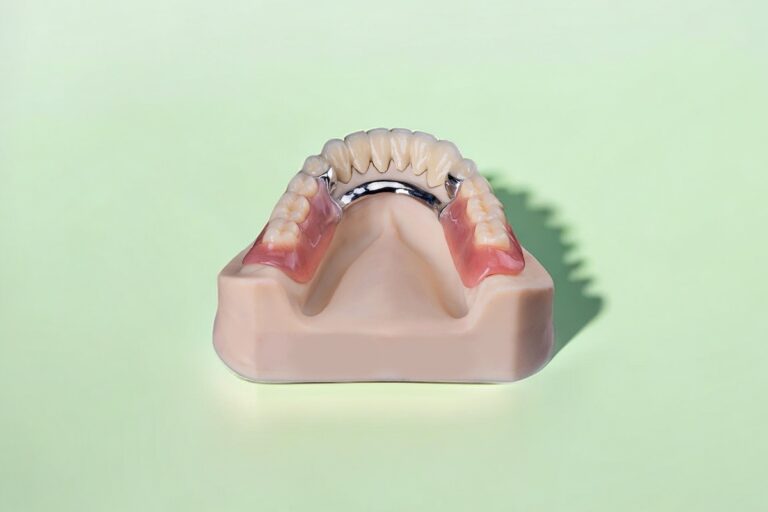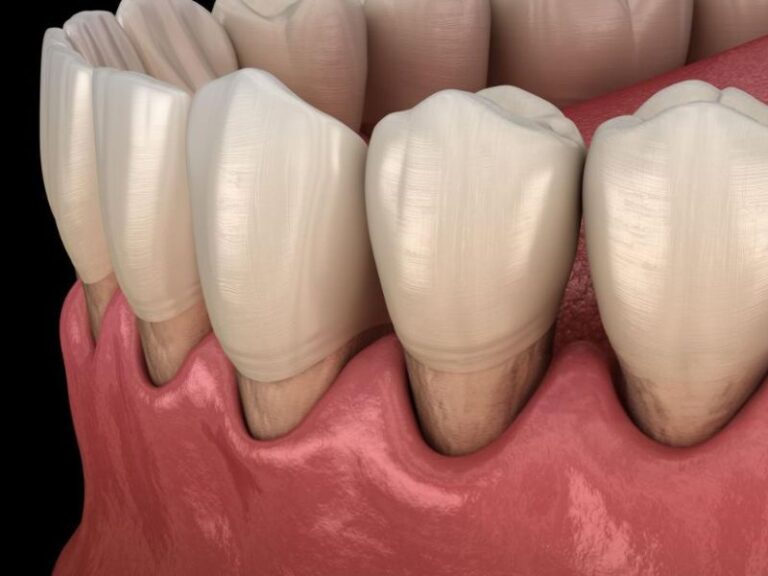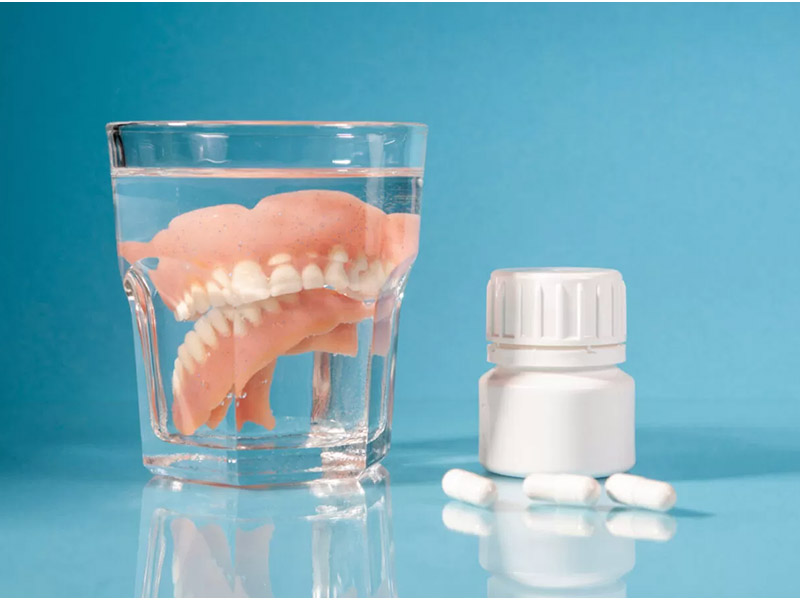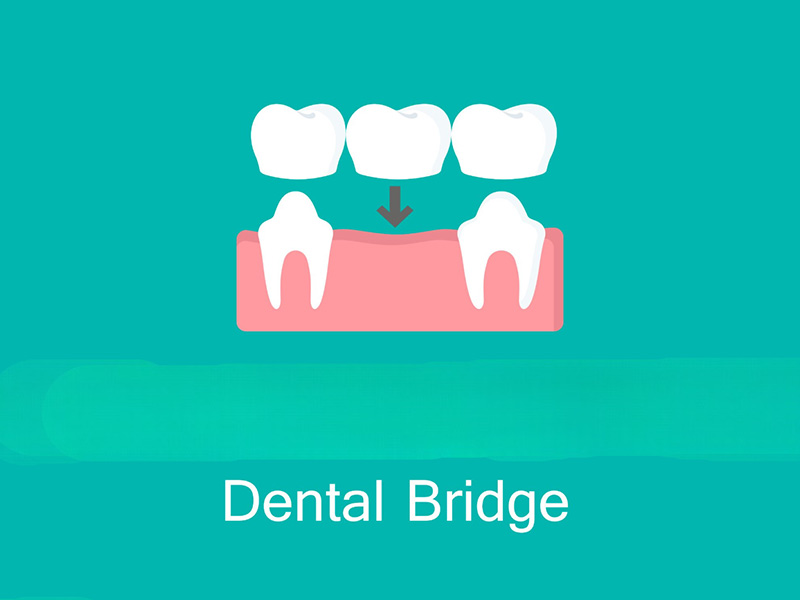
Do Cavity Fillings Hurt? A Simple, Step-by-Step Guide
Are you worried about getting a filling for a cavity? Wondering if it hurts or if you should feel scared? Let’s break it down step-by-step, explain what’s really going on, and show you how your dentist keeps you comfy. If you’re nervous, you’re not the only one. By the end, you’ll know what’s about to happen, how to deal with any pain, and when you should call your dentist. Ready? Let’s get started! This is the place for you.
Table of Contents
Why Are People Scared of Getting a Filling?
Getting your tooth fixed should be no big deal, right? But lots of people—kids and adults—feel scared about it. Why? Because most of us have heard stories about bad dentist visits. Sometimes, our past bad memories make us nervous. Maybe you worry about getting a shot in your mouth, the sound of the drill, or if you’ll have pain later.
A study by Healthline says about 36% of people feel nervous before going to the dentist. You are not the only one if you feel this way! Many folks are scared it’ll hurt or just feel strange. But the truth is, today’s dentists work really hard to keep you comfortable and pain-free.
Here are some reasons people are afraid:
- Scared of needles or shots
- Scared of pain during or after the filling
- Scared of the weird sounds (like the drill)
- Feeling like you can’t control what happens
Learning what happens, step-by-step, can help a lot. Once you know what to expect, things aren’t so scary anymore. So let’s talk about what’s really going to happen and how it feels.
Do Fillings Hurt? What’s It Really Like?
Here’s the short answer: Most of the time, getting a cavity filled does NOT hurt. Dentists use numbing medicine to make your tooth and gum sleepy. You might feel a tiny pinch for a second, but that’s all. Most people say it’s only about a 2 or 3 out of 10 on the pain scale—so pretty low.
Numbing medicine works fast. Dentists use safe stuff like Lidocaine or Articaine to block the feeling in your tooth. They even use a numbing gel first, so the shot is easier. If you ever feel more than just a little bit of pressure, tell your dentist. They really do want you to be comfortable.
And here’s something to remember: the pain from a cavity that isn’t fixed hurts a lot more than a tiny pinch from a shot or a bit of drilling.
What Happens, Step-by-Step, During a Filling?
Step 1: Making Your Tooth Numb
First, your dentist puts some numbing gel on your gum. That way you barely feel the little poke from the needle. Then you get a shot of numbing medicine (like Lidocaine) in your gum or cheek. It only takes a few seconds.
Step 2: Cleaning Out the Bad Part
Once your mouth is numb, the dentist uses a drill (or sometimes a laser or a little sand blaster) to clean out the bad, rotten part of the tooth (cavity). You won’t feel pain, just a bit of shaking, tapping, and the sound of the drill. The dentist also squirts water to keep your tooth cool. Sometimes they use a rubber sheet or cotton to keep the rest of your mouth safe.
Step 3: Putting in the Filling
Now they put in the filling to make your tooth whole. Most people get a white filling (called composite), but sometimes the dentist uses a silver filling (amalgam), a kind of glass, porcelain, or even gold. The dentist might put a little gel on your tooth, wash it off, squish in the filling stuff, and then shine a blue light (curing light) to make it hard.
Step 4: Making It Smooth and Checking Your Bite
At the end, your dentist will polish the filling and check how your teeth fit together using a special colored paper. If your bite feels off, say something! The dentist will fix it until it feels right.
Table: What Happens and What You’ll Feel
| Step | What You’ll Feel | What Helps You Feel Better |
|---|---|---|
| Numbing | Quick pinch, tingling, then numbness | Numbing gel, go slow |
| Drilling | Vibration, noise, pressure, NO pain | Good numbing, lots of water |
| Filling goes in | Tapping, a weird taste, some pressure | Numbing still working |
| Polishing/Checking | No pain, just biting and talking | Super quick |
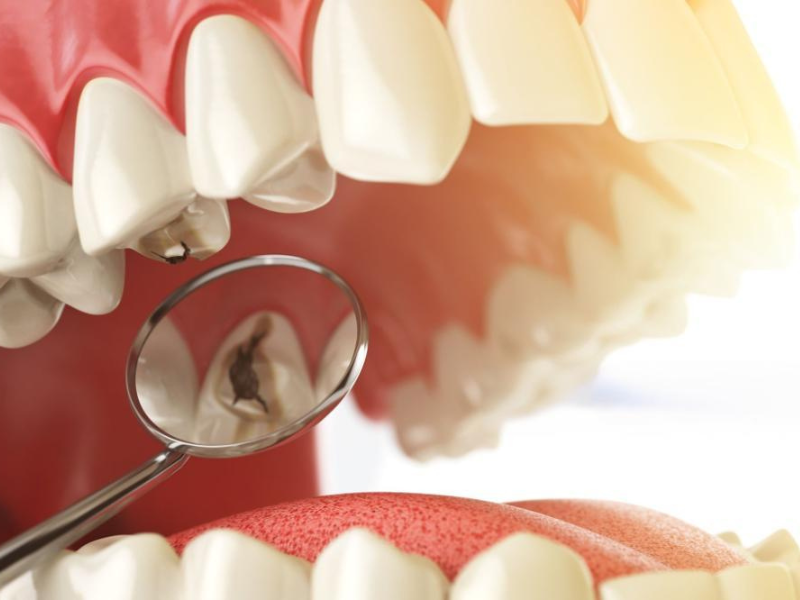
What Will I Feel When I Get Numbed Up?
Most people worry more about the shot than anything else. Good news: Dentists always use numbing gel first! So you should barely feel a little pinch or sting, and it’s over before you know it.
After the shot, your lip, cheek, or tongue will feel puffy and tingly. That’s totally normal! Some folks say it feels like a “fat face.” The numb feeling can last anywhere from 1-4 hours.
A few tips:
- Ask your dentist to go slow with the shot
- Wiggle your toes or focus on your breathing
- Tell your dentist if you’ve had problems with numbing before
The ADA says putting gel on your gum before the shot makes it hurt a lot less. Most folks say it’s not a big deal at all.
Does the Drill Hurt?
Here’s the real deal: If your tooth is numb, you won’t feel the drill as pain. But you’ll hear a buzzing or humming, maybe smell something a bit funny, and you’ll feel your tooth shake a little.
But you should not feel pain. If you do, let your dentist know right away—more numbing makes it stop.
Dentists use super fast drills with water to keep you comfy. There’s always someone helping out too.
Don’t like the drill sound? Try this:
- Bring headphones and listen to music or a podcast
- Ask to take breaks if you need it
- Tell your dentist you’re nervous—they get it!
How Is the Filling Put In?
Once your tooth is clean, here’s what happens:
- Dentist puts a gentle acid gel (“etch”) to help the filling stick
- Washes it off and dries your tooth
- Adds some glue
- Puts in the filling stuff—white, silver, or glass
- Shines a blue light to make it hard (for white fillings)
You may feel tapping or a bit of cold air, but that’s it. Silver fillings get hard on their own, but still need a good polish.
Last, the dentist makes sure the filling is shaped right. They’ll have you bite down, check if it feels normal, and sand it a bit if it doesn’t.
What Happens After? Will My Tooth Be Sore?
Once the numb feeling is gone, your tooth might feel odd for a while. That’s totally normal! Sometimes, you’ll feel a little zingy feeling when you eat cold things, hot foods, sweets, or even when you take a breath.
Here’s why: The inside of your tooth (nerve) may just be a bit annoyed from all the poking around. Usually, this goes away by itself in a few days to a few weeks. A study by WebMD says about 15-30% of people’s teeth feel weird after a new filling, but most feel better in a month.
What’s normal:
- Tooth feels strange for a few days
- Gum feels sore, maybe a bit puffy
- Jaw is tired if you kept your mouth open a long time
- Short zings with cold, hot, or sweets
To feel better, try this:
- Use toothpaste for sensitive teeth
- Take an Ibuprofen or Tylenol if you need it
- Don’t eat really cold, hot, or super chewy foods for a bit
What Pain Isn’t Normal?
Most pain after a filling should be small. But sometimes, your tooth gets angry in a way it’s not supposed to. Don’t ignore these:
Sharp pain when you chew means your filling is too tall. The dentist can fix it in five minutes. Call them!
Pain that won’t stop, hurts a lot, or pounds with your heartbeat probably means the nerve in the tooth is upset or even infected. Maybe the filling was deep, or the nerve is just touchy (they call it “pulpitis”).
Swelling, redness, or a fever is not good. This could mean you have an infection. Call your dentist right away.
If the filling falls out and your tooth starts hurting—the middle part is showing and it can be really sore. You can cover it with wax but see your dentist soon.
Don’t wait longer than two weeks with real pain. If you’re not sure, call your dentist. That’s what they’re for.
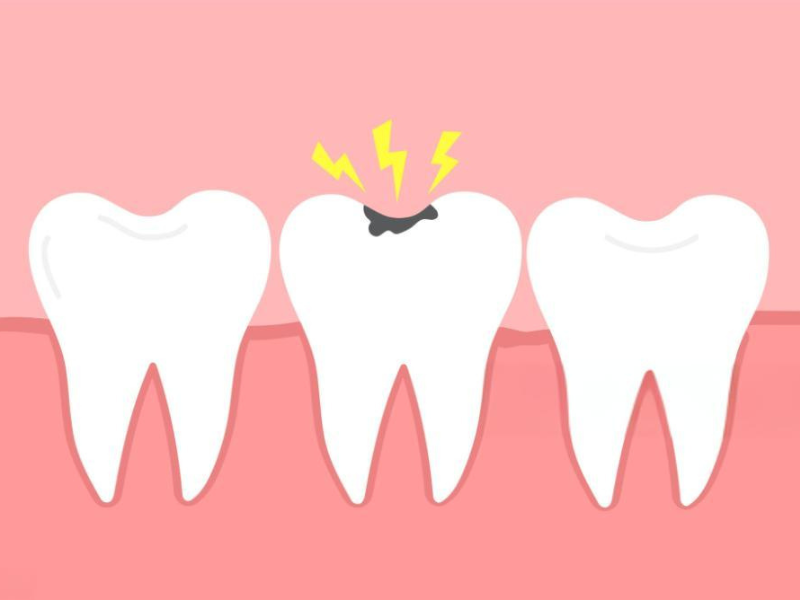
How Can I Make Pain Go Away After a Filling?
There’s a lot you can do to feel better if your tooth is sore after getting a filling. Most people just need time, easy brushing, and sometimes a pill.
Easy Ways to Help Tooth Soreness:
- Take some Ibuprofen or Tylenol—they help with pain and swelling
- Eat soft foods until the numb feeling wears off, and stay away from hot, cold, or sticky foods for a little while
- Brush soft and floss easy around your new filling
- Rinse with warm salty water if your gums feel puffy
- Use toothpaste for sensitive teeth (has stuff like potassium nitrate or special fluoride)
If your jaw or cheek is sore from the shot or keeping your mouth open, put a cold pack on your face for a short time.
When should you call your dentist?
- Pain gets worse after two days
- You feel a sharp jab when you chew
- Your face stays numb more than 4–6 hours
How Do I Deal With Being Scared at the Dentist?
Lots of people are scared of getting dental work. Don’t let it stop you from having healthy teeth! Here’s what really helps most folks:
- Talk to your dentist. Tell them you’re nervous. Good dentists listen.
- Ask about sleepy gas or relaxing pills. Some offer these to help you chill out.
- Bring headphones and listen to something good. Makes the time fly by.
- Take slow, deep breaths. Really, it helps.
- Use hand signals. Want a break? Raise your hand.
These days, dentist offices are made to be calm and gentle. If you had a bad trip to the dentist years ago, things are different now.
Frequently Asked Questions
Q: How long does the numbness last?
A: The tingly, numb feeling from the shot will hang around for two to four hours (sometimes a bit longer for some teeth). Don’t chew or eat until you can feel everything so you don’t bite yourself.
Q: Can I eat after a filling?
A: With white (composite) fillings, yes—just wait until you’re not numb anymore. With silver (amalgam) fillings, wait 24 hours to chew on that side.
Q: Why does my new filling feel weird?
A: Your mouth just needs to get used to a new shape. If it feels too tall, pokes your cheek, or your bite isn’t right, let your dentist know. It’s an easy fix.
Q: Why does my tooth still hurt, even months after a filling?
A: Sometimes, the nerve inside the tooth stays mad, or the filling might be pressing a little too hard. If it doesn’t get better, see the dentist.
Q: Are there ways to fill cavities besides using a drill?
A: Yes! Some dentists can use a tiny sand-blaster (air abrasion) or a laser on small cavities. Lots of people think these are not as scary.
Summary: What to Remember
- Fillings shouldn’t hurt—numbing medicine means you just feel some tapping and shaking
- Dentists use gel, gentle shots, and new tools to keep you comfy
- It’s normal to be a little sore, have weird feelings, or have a sensitive tooth for a while
- Sharp pain when chewing? Call your dentist so they can fix your bite
- If you have strong pain, swelling, or feel sick—always call your dentist
- Being scared is normal—talk to your dentist and try relaxing music, deep breaths, or ask about sleepy gas
- Keep brushing, flossing, and avoid rough, chewy foods right after your filling
- Most pain goes away fast—leaving a cavity hurts way more!
- Taking care of your teeth is worth a short trip to the dentist. Don’t let fear win.
References:
- Healthline: “Here’s How Bad Getting a Cavity Filled Really Feels—…and How to Make It Better”
- American Dental Association (ADA): “Cavity Fillings and Your Dental Health”
- WebMD: “Dental Filling Pain: Why It Happens and What To Do”
- Colgate: “Tooth Sensitivity After a Filling—What You Should Know”
Got more questions or want to learn more? Visit our cavity fillings page or check out dental anxiety tips. Book a check-up and keep your smile shining bright!



